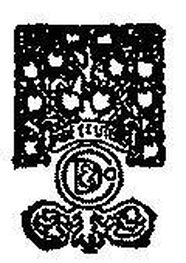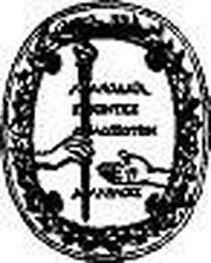These dispositions mark a relapse from understanding. They are imitative. This time there has been no revelation here or there; there is no claim to a revelation but simply that God has become visible. Men have thought and sought until insensibly the fog of obsolete theology has cleared away. There seems no need therefore for special teachers or a special propaganda, or any ritual or observances that will seem to insist upon differences. The Christian precedent of a church is particularly misleading. The church with its sacraments and its sacerdotalism is the disease of Christianity. Save for a few doubtful interpolations there is no evidence that Christ tolerated either blood sacrifices or the mysteries of priesthood. All these antique grossnesses were superadded after his martyrdom. He preached not a cult but a gospel; he sent out not medicine men but apostles.
No doubt all who believe owe an apostolic service to God. They become naturally apostolic. As men perceive and realise God, each will be disposed in his own fashion to call his neighbour's attention to what he sees. The necessary elements of religion could be written on a post card; this book, small as it is, bulks large not by what it tells positively but because it deals with misconceptions. We may (little doubt have I that we do) need special propagandas and organisations to discuss errors and keep back the jungle of false ideas, to maintain free speech and restrain the enterprise of the persecutor, but we do not want a church to keep our faith for us. We want our faith spread, but for that there is no need for orthodoxies and controlling organisations of statement. It is for each man to follow his own impulse, and to speak to his like in his own fashion.
Whatever religious congregations men may form henceforth in the name of the true God must be for their own sakes and not to take charge of religion.
The history of Christianity, with its encrustation and suffocation in dogmas and usages, its dire persecutions of the faithful by the unfaithful, its desiccation and its unlovely decay, its invasion by robes and rites and all the tricks and vices of the Pharisees whom Christ detested and denounced, is full of warning against the dangers of a church. Organisation is an excellent thing for the material needs of men, for the draining of towns, the marshalling of traffic, the collecting of eggs, and the carrying of letters, the distribution of bread, the notification of measles, for hygiene and economics and suchlike affairs. The better we organise such things, the freer and better equipped we leave men's minds for nobler purposes, for those adventures and experiments towards God's purpose which are the reality of life. But all organisations must be watched, for whatever is organised can be "captured" and misused. Repentance, moreover, is the beginning and essential of the religious life, and organisations (acting through their secretaries and officials) never repent. God deals only with the individual for the individual's surrender. He takes no cognisance of committees.
Those who are most alive to the realities of living religion are most mistrustful of this congregating tendency. To gather together is to purchase a benefit at the price of a greater loss, to strengthen one's sense of brotherhood by excluding the majority of mankind. Before you know where you are you will have exchanged the spirit of God for ESPRIT DE CORPS. You will have reinvented the SYMBOL; you will have begun to keep anniversaries and establish sacramental ceremonies. The disposition to form cliques and exclude and conspire against unlike people is all too strong in humanity, to permit of its formal encouragement. Even such organisation as is implied by a creed is to be avoided, for all living faith coagulates as you phrase it. In this book I have not given so much as a definite name to the faith of the true God. Organisation for worship and collective exaltation also, it may be urged, is of little manifest good. You cannot appoint beforehand a time and place for God to irradiate your soul.
All these are very valid objections to the church-forming disposition.
4. ORGANISATIONS UNDER GOD
Yet still this leaves many dissatisfied. They want to shout out about God. They want to share this great thing with all mankind.
Why should they not shout and share?
Let them express all that they desire to express in their own fashion by themselves or grouped with their friends as they will. Let them shout chorally if they are so disposed. Let them work in a gang if so they can work the better. But let them guard themselves against the idea that they can have God particularly or exclusively with them in any such undertaking. Or that so they can express God rather than themselves.
That I think states the attitude of the modern spirit towards the idea of a church. Mankind passes for ever out of the idolatry of altars, away from the obscene rites of circumcision and symbolical cannibalism, beyond the sway of the ceremonial priest. But if the modern spirit holds that religion cannot be organised or any intermediary thrust between God and man, that does not preclude infinite possibilities of organisation and collective action UNDER God and within the compass of religion. There is no reason why religious men should not band themselves the better to attain specific ends. To borrow a term from British politics, there is no objection to AD HOC organisations. The objection lies not against subsidiary organisations for service but against organisations that may claim to be comprehensive.
For example there is no reason why one should not—and in many cases there are good reasons why one should—organise or join associations for the criticism of religious ideas, an employment that may pass very readily into propaganda.
Many people feel the need of prayer to resist the evil in themselves and to keep them in mind of divine emotion. And many want not merely prayer but formal prayer and the support of others, praying in unison. The writer does not understand this desire or need for collective prayer very well, but there are people who appear to do so and there is no reason why they should not assemble for that purpose. And there is no doubt that divine poetry, divine maxims, religious thought finely expressed, may be heard, rehearsed, collected, published, and distributed by associations. The desire for expression implies a sort of assembly, a hearer at least as well as a speaker. And expression has many forms. People with a strong artistic impulse will necessarily want to express themselves by art when religion touches them, and many arts, architecture and the drama for example, are collective undertakings. I do not see why there should not be, under God, associations for building cathedrals and suchlike great still places urgent with beauty, into which men and women may go to rest from the clamour of the day's confusions; I do not see why men should not make great shrines and pictures expressing their sense of divine things, and why they should not combine in such enterprises rather than work to fill heterogeneous and chaotic art galleries. A wave of religious revival and religious clarification, such as I foresee, will most certainly bring with it a great revival of art, religious art, music, songs, and writings of all sorts, drama, the making of shrines, praying places, temples and retreats, the creation of pictures and sculptures. It is not necessary to have priestcraft and an organised church for such ends. Such enrichments of feeling and thought are part of the service of God.
And again, under God, there may be associations and fraternities for research in pure science; associations for the teaching and simplification of languages; associations for promoting and watching education; associations for the discussion of political problems and the determination of right policies. In all these ways men may multiply their use by union. Only when associations seek to control things of belief, to dictate formulae, restrict religious activities or the freedom of religious thought and teaching, when they tend to subdivide those who believe and to set up jealousies or exclusions, do they become antagonistic to the spirit of modern religion.
Читать дальше







